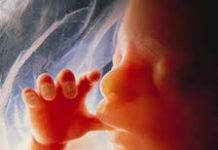On the liturgical feast of the Holy Innocents, the Church honours the first martyrs who gave their lives for our Lord Jesus, the children of Israel killed by King Herod in his quest to find baby Jesus to eliminate him. Herod’s wickedness clearly shows to what extent pride and its little preferred child, jealously, can do.
This day is also known as Childermas. The Biblical account has it that Herod was afraid of the prophesied King of Jews and was angry that he hadn’t heard from the Magi who had come to him initially seeking a newborn king. Furious that Jesus had escaped, Herod ordered the killing of all baby boys under the age of two in Bethlehem and the surrounding areas. In that way he hoped, in vain of course, to have killed his opponent king, the Christ. (Mt 2:16-18)
These children are the first Christian martyrs of whom we know, and they have been referred to also as the patron saints for babies. Originally celebrated together with Epiphany, by the fifth century, this had become a festival by itself.
There have been many changes in the way Holy Innocents Day has been celebrated over the years. From mourning to being a part of the Feast of Fools, which was a day when children were encouraged to have fun and play pranks. In the Middle Ages, playing pranks was later condemned and changed around 1400 in some parts of Europe. Today children are encouraged to play tricks in parts of Spain and South America, and the Philippines. While churches may not use ‘Gloria’ or ‘Alleluia’ until the day of the feast, it is still a day to celebrate children and encourage them to be happy and play. In Trinidad and Tobago, children get to have their toys blessed during Mass on Feast Day.
In Malta this Christmas has been sadly marked by the voting for an amendment which would permit an abortion to take place not only when a mother’s life is at risk but also in cases where there is ‘grave risk to a woman’s health’. The Maltese conference of Catholic Bishops opposed such an amendment. They said that such an amendment opens door for introduction of abortion. In their Pastoral Note of December 2, 2022, entitled Let us protect every human life with great care, the Maltese Bishops, Mgr Charles J. Scicluna, archbishop of Malta, Mgr Anton Teuma, bishop of Gozo and Mgr Joseph Galea-Curmi, auxiliary bishop, said:
However, the proposed amendment introduces something new. It also speaks of situations in which it is not the mother’s life that is in danger, but her health, and proposes that health can be safeguarded by killing a new human life. This means abortion. The experience of a number of countries shows that abortion was introduced precisely because of the use of this word ‘health’, as is being proposed in the amendment. This is a very serious matter. We know that when health requires treatment, every type of treatment necessary should be given, and when the mother needs help, she should be given all the support that she needs. However, a human life should not be killed to safeguard somebody’s health. When respect for the dignity of the baby in the womb is denied, the foundation of respect for the dignity of each human being – including that of the woman and the professional – is destroyed.
Almost 70 percent of respondents to a survey carried out by Misco, which is one of Malta’s leading consulting firms, say they are opposed to abortion if the pregnancy does not place the mother’s life at risk.
The survey, commissioned by the Archdiocese of Malta, was carried out towards the end of November and featured 800 respondents. Conversely, almost 80 percent favour a medical intervention that results in the termination of pregnancy in circumstances where a woman’s life is in danger. Meanwhile, one-fifth of respondents, 21 percent, agree that abortion can be used a means of limiting the size of a family, irrespective of whether a mother’s health or life is at risk.
Respondents were asked three questions during the survey: (1) Do you agree or disagree with abortion in the following circumstances? When the pregnancy endangers the life of the mother; (2) Do you agree or disagree with abortion in the following circumstances? When the pregnancy does not endanger the life of the mother; (3) Do you agree or disagree with abortion in the following circumstances? When he mother does not wish to have more children.
With regard to the question of abortion in cases where a woman’s life is not at risk, it is notable that 58 percent of women and 78 percent of men expressed themselves against, while opposition to abortion increases significantly in the categories above 24 years of age.
As Malta’s Parliament is voting on an amendment which would let an abortion to take place not only when a mother’s life is at risk but also in cases where there is ‘grave risk to a woman’s health’, the Church has rightly expressed extreme concern over any legislative change that would permit the termination of a pregnancy to take place in circumstances where a woman’s life is not at risk.
In the traditional Christmas message of this year, Gozo bishop Anton Teuma used this important occasion to launch another heartfelt appeal to the Maltese authorities to stop and reflect before the planned introduction of changes to the provisions on abortion in the Criminal Code. The contentious reforms, which were approved in Parliament in their second reading on Monday 19 December 2022, ahead of planned amendments in committee and the final, third reading vote, have largely been interpreted by anti-abortion campaigners as effectively paving the way for legal abortion in Malta.
And in this context, Bishop Teuma’s greeting took a more sombre tone than one would normally have expected in these times of Christmas festivities. It is sincerely not easy for me to share my Christmas greetings with you as in previous years – in other words, to celebrate and encourage you to celebrate the birth of baby Jesus – because of the situation we are going through, the Bishop stated. While we are celebrating the feast of Christmas, we are likely paving the way for Malta to become a cemetery for those who are deemed not to be viable.”
The Bishop recalled that to Christians, Christmas marked the occasion when God himself took the form of a baby, and that for all the discussion about what was viable or not, ultimately no infant could survive on their own. If Joseph and Mary did not feed him, clothe him and offer him shelter, than the infant Jesus would have died like all of us would have,” he noted.Finally, he said, no one is truly viable on their own, because everyone needed the help and support of others.
Mgr Teuma also said that his own exchanges with experts only confirmed that the bill was unnecessary: Malta did not need to change its laws to protect both women and the health professionals who must intervene to save their lives. Showing that “rarely, if ever” have Maltese medical professionals been forced to choose between saving a pregnant woman or the foetus, he argued that it would be insulting to Malta’s doctors to suggest that they prioritised the latter over women’s lives in the past.
My wish this Christmas is for all those with common sense to reason, to stop and reflect, to stop and try to discern what is truly best for the people, not what is best for me, or for a few people in power, he stated. I hope that the laws being written in this country are not guided by any surveys or censuses, finding in favour or against a party or another, but are laws drafted in full respect of humanity.
Let us fervently pray to the Holy Innocents to intercede for Malta and the world to be freed, once and for all, from this painful and horrendous scourge of abortion. Human life is to be cherished and protected from the moment of conception till its natural end. +











